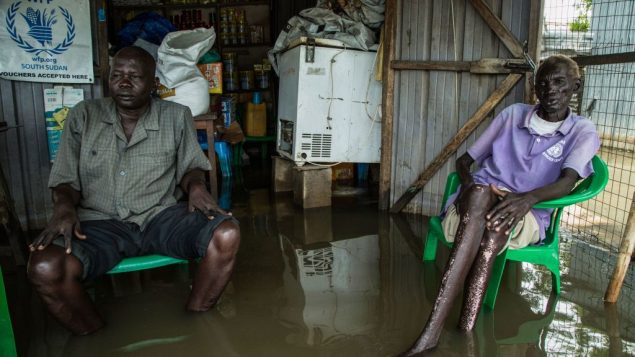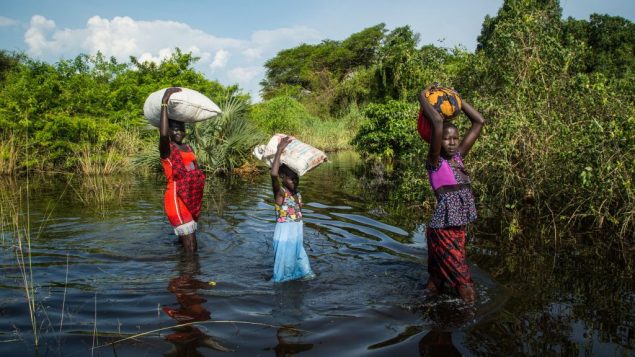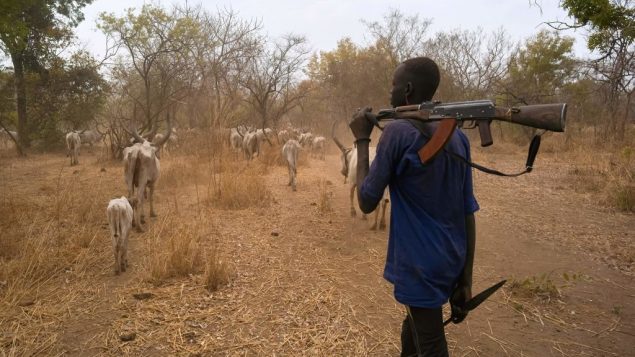Ten years after independence, staggering levels of violence have engulfed more than three-quarters of South Sudan, while hunger looms over 60 per cent of the country’s population, UN agencies warn.
In a report released Friday, the UN Commission on Human Rights in South Sudan warned that the bloodshed faced by civilians is “the worst recorded” since the country’s civil war began in December 2013.
Commission Chair Yasmin Sooka said that although the signing of the Revitalized Peace Agreement two years ago had “led to a reduction in hostilities at the national level”, the country has seen “a massive escalation in violence” locally.
“The Commission has documented some of the most brutal attacks carried out over the past seven years, particularly in Central Equatoria, Warrap, Jonglei, and Greater Pibor Administrative Area which have seen an escalation in conflict, resulting in homes being systematically and deliberately torched, civilians are forced to flee, many are killed, and women and girls are abducted, raped, gang-raped, and sexually enslaved, and in some instances are forcibly married,” Sooka said.
“Women and girls have been targeted by all sides, while abducted boys were forced to fight, and in some instances forcibly assimilated into rival groups with their identities completely erased.”
Commissioner Andrew Clapham said the scale of the armed violence and the newer weapons used by local groups suggest either the involvement of state forces or external actors.
“Many of these acts are human rights violations and may also amount to crimes under international law included in the draft statute of the Hybrid Court for South Sudan,” Clapham said. “There is currently almost no accountability in South Sudan for such violations.”
Looming famine

Men sit inside a flooded shop in a flooded area after the Nile river overflowed after continuous heavy rain which caused thousands of people to be displaced in Bor, central South Sudan, on Aug. 9, 2020. (Akuot Chol/AFP via Getty Images)
In the meantime, the World Food Programme (WFP) is warning that 7.24 million South Sudanese are going increasingly hungry due to chronic sporadic violence, extreme weather patterns and the economic impact of COVID-19.
More than one million people across South Sudan have been affected by floods sweeping across the eastern and central regions this year, submerging homes, farmlands and livestock.
Hard-to-reach areas in six counties are at “risk of famine”, according to the Famine Review Committee’s report in December 2020, the UN food agency said.
WFP began scaling up its emergency food assistance last year in six counties, Akobo, Pibor, Aweil west, Tonj North, Tonj South and Tonj East, where one million people live, including 108,000 people who are extremely food insecure and struggle in a desperate daily quest for food.

People walk with their belongings in a flooded area after the Nile river overflowed after continuous heavy rain which caused thousands of people to be displaced in Bor, central South Sudan, on Aug. 8, 2020. (Akuot Chol/AFP via Getty Images)
“I was desperate when the floods came. No one helped me,” Nyal Chol Liech Muon, a widowed mother of four in the village of Nyandit in Jonglei State’s Akobo east district, told WFP.
“My husband was killed in the fighting. Everyone in the area fled and I was left alone with my children but I chose to stay behind. The fear of being homeless and my children having to beg for food was greater than my fear of the floods.”
Kavagoch Koli, a widowed mother of five in the village of Vertet in the Pibor district, told WFP Executive Director David Beasley about the misery facing her family
“When the food is finished and the pots are empty, life becomes very hard for us,” Koli said.
People in Vertet are barely surviving Beasley said.
“This village of about 8,000 people wouldn’t survive if it weren’t for the World Food Programme, and hopefully if we can end the conflict and work with the tribal leaders and the villagers here, then we can build dykes and harvest the water such that we won’t even have to be here again,” Beasley said.







For reasons beyond our control, and for an undetermined period of time, our comment section is now closed. However, our social networks remain open to your contributions.